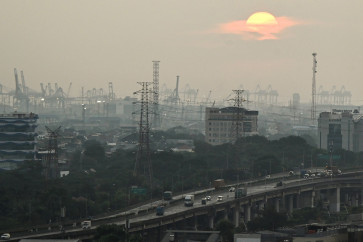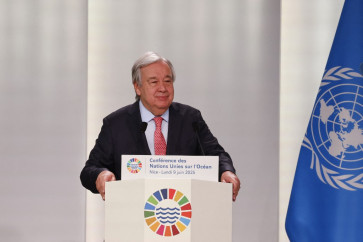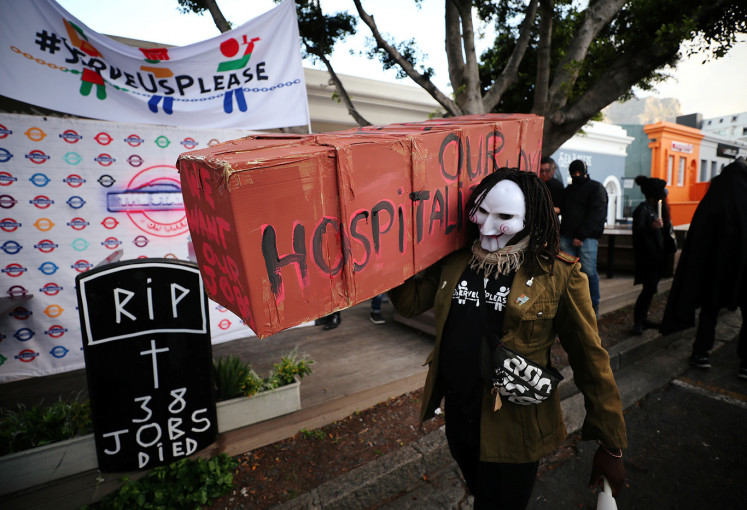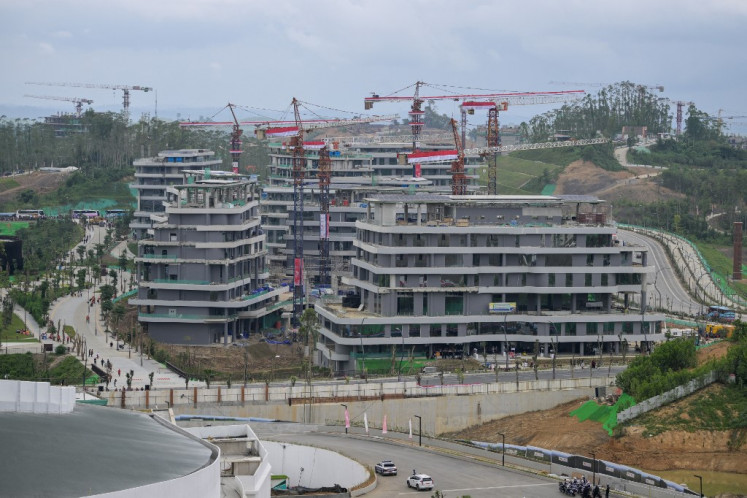CBD office market expected to grow in 2010
Although Indonesia may be facing challenges due to the global crisis, the office property sub-sector has experienced positive growth
Change text size
Gift Premium Articles
to Anyone

A
lthough Indonesia may be facing challenges due to the global crisis, the office property sub-sector has experienced positive growth. Despite the relatively slow transaction activity, leasing inquiries showed an increasing trend during the fourth quarter of 2009.
Inquiries mostly came from tenants with leases expiring next year and began their “move versus
stay” evaluation process. Surprisingly, some of these inquiries also came from the banking and financial sectors, which have been rather quiet since the fourth quarter of 2008. The banking and financial sectors used to be the biggest demand generator for the central business district (CBD) Jakarta offices, particularly between 2007 and 2008.
This pattern is related to the macro condition. The country’s annual economic growth in 2009 is estimated to reach between 4.1 and 4.3 percent, dropping from the 6.2 percent recorded the previous year. Meanwhile, several general economic indicators showed an improvement in the fourth quarter of 2009.
The rupiah strengthened against the US dollar, and by mid-December 2009, the rupiah stood at Rp 9,425 per US dollar or appreciated by 2.7 percent from the rate recorded at the end of September 2009.
In a YoY comparison, the rupiah strengthened significantly against the US dollar by 16.2 percent (from Rp 10,950 per US dollar recorded at the end of December 2008).
The stock market continued to show favorable activity over the fourth quarter of 2009 as indicated by the ISX composite index that increased from 2,295 at the end of September 2009 to 2,426 by mid December 2009.
Interest rates also decreased further and a much lower inflation rate was recorded during the review quarter.
The 2009 annual inflation rate is projected to only reach 2.9 percent, much lower than the 11.03 percent recorded in the previous year. The 2009 inflation rate is notably the lowest since 1999.
Meanwhile, the one-month SBI rate continued to decrease from 6.48 percent at the end of September 2009 to 6.46 percent at the end of December 2009, while the three-month SBI rate slightly increased from 6.55 to 6.59 percent.
In line with the one-month SBI fall, investment credit decreased further from 13.94 percent at the end of September 2009 to 13.8 percent at the end of December 2009.
The sign of “return” of the banking and financial sectors to the market gives a strong indication that
there is high confidence and optimism on economic recovery and that business activities will be much better next year, which usually will be translated to higher demand for office space.
What about demand and occupancy? Physical occupation of pre-committed occupiers in the newly completed office buildings continued during the fourth quarter of 2009.
The occupation of about 23,000 square meters of office space at The Energy in SCBD by Medco
oil company and approximately 27,000 sqm at Cyber 2 Tower in Kuningan were the two major office occupations that occurred during the review period.
Net take-up of 35,700 sqm was recorded during the fourth quarter of 2009, which is slightly higher by 6 percent than that recorded in the previous quarter. Grade A offices continued to contribute the only positive take-up of 58,800 sqm, while Grade B and C experienced negative take-up of 11,500 sqm and 11,600 sqm, respectively.
Higher negative take-up in Grade-B occurred due mostly to the relocations of Medco from Menara Bidakara (9,250 sqm) and IBM from Landmark Tower A (4,800 sqm).
Meanwhile, the negative take-up in Grade C sub-market was mostly contributed by the BDN Building (8,000 sqm), which has been under a vacated process for owner occupation (Bank Mandiri) in mid-2010.
For the whole of 2009, an annual take-up of 109,600 sqm was recorded in the CBD Jakarta office market. This figure is only 36 percent of the annual take-up achieved in 2008.
The global financial crisis has surely caused this significant net take-up decline, as almost all business sectors slowed down during 2009. By the end of December 2009, the average occupancy rate of CBD Jakarta office market stood at 84.3 percent, decreasing by 2.7 percent from last year’s figure.
Meanwhile, gross rentals of CBD office buildings remained at their previous levels during the quarter.
The average gross rental (base rental plus service charge) in rupiah terms decreased by 0.7 percent over the fourth quarter to Rp 140,900 per sqm per month.
In US dollar terms, this average gross rental increased by 2.0 percent to US$14.95 per sqm per month during the same period due to the strengthening of the rupiah against the US dollar by 2.7 percent over the review quarter.
In YoY comparison, the rupiah gross rentals of CBD office space decreased by 2.7 percent, while
in US dollar terms it increased by 13 percent.
This was mostly due to the significant strengthening of the rupiah against the US dollar from Rp 11,950 per US dollar to Rp 9,425 per US dollar over the year (16.2 percent).
Transaction activity for strata title office space within strata title buildings slowed down over 2009. As of the end of the third quarter 2009, the pre-sales rate for strata-title offices stood at 54.5 percent.
The asking price for CBD strata title office space remained stable during the fourth quarter of 2009.
The higher quality strata title space was quoted in the market at between $2,000 and $2,300 per sqm, while lower quality space was offered at around Rp 13 million per sqm.
Higher demand for office space in 2010 is expected, as business activity and economic recovery is projected to be much better in 2010. The banking and financial sectors are expected to re-enter the CBD Jakarta office market in the short to medium terms, after being relatively sluggish due to global financial crisis over 2009.
The occupancy level, however, is expected to stabilize in 2010 due to the completion of several large new projects.
In the other hand, gross rentals are projected to increase in 2010 with expected growth in the economy and demand levels. Service charges will be the component to be adjusted immediately as the anticipation of utility increments, i.e. electricity rates.
The writer is associate director
PT Cushman & Wakefield Indonesia.









